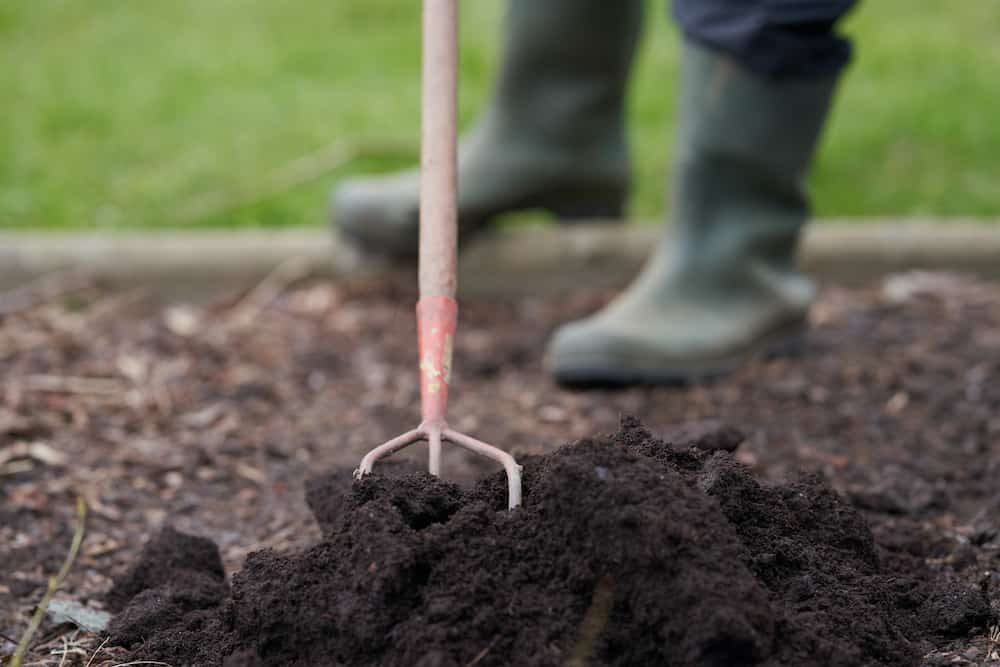Mulching is an essential gardening practice that many homeowners often overlook. A layer of mulch can provide many benefits for your garden, such as conserving moisture, suppressing weeds, improving soil health, and enhancing the overall appearance of your landscape.

What is Mulch?
Mulch is a layer of organic or inorganic material applied to the soil surface around plants. Organic mulches are derived from natural sources, such as leaves, straw, bark, or compost. Inorganic mulches, on the other hand, are made from synthetic materials, such as plastic or rubber. Both mulch types can benefit your garden, but organic mulches are generally preferred because they break down over time and contribute to soil health.
The Benefits of Using Mulch
1. Retains Moisture
Mulch acts as a protective layer on top of the soil, reducing the evaporation rate and retaining moisture. This is particularly important when the soil can quickly dry out in hot and dry weather. Mulch helps to conserve water and keep the soil moist, reducing the frequency of watering your plants.
2. Prevents Soil Erosion
Another important benefit of using mulch in your garden is that it helps to prevent soil erosion. Mulch provides a barrier that protects the soil from the impact of rain and wind, preventing it from being washed or blown away. This is particularly important if your garden is on a slope, as it can help to stabilize the soil.
3. Suppresses Weeds
Weeds are a common problem in gardens, and they can compete with your plants for nutrients, water, and sunlight. Mulch can help suppress weeds’ growth by blocking sunlight and preventing weed seeds from germinating. This means that you will spend less time weeding and more time enjoying your garden.
4. Regulates Soil Temperature
Mulch helps to regulate soil temperature, keeping the soil cool in the summer and warm in the winter. This is particularly important for plants that are sensitive to temperature fluctuations, as it can help them to grow better and produce more flowers or fruit.
5. Improves Soil Fertility
Mulch can also improve soil fertility by slowly breaking down over time and releasing nutrients into the soil. This means that your plants will have access to a steady supply of nutrients essential for their growth and development.
6. Prevents Soil Compaction
Heavy foot traffic or frequent use of garden equipment can cause soil compaction, which makes it difficult for plants to grow. Mulch can help to prevent soil compaction by providing a layer of cushioning that protects the soil and allows air and water to circulate freely.
7. Enhances Soil Structure
Mulch can enhance soil structure by promoting the growth of beneficial microorganisms that break down organic matter and improve soil texture. This means your soil will be more crumbly and easier to work with, ideal for planting and gardening.
8. Protects Plants from Frost
Mulch can also protect plants from frost damage by providing an insulating layer that traps heat and protects the roots from freezing. This is particularly important for plants sensitive to cold weather, as it can help them survive the winter and emerge healthy in the spring.
9. Adds Aesthetic Value
Mulch can also add aesthetic value to your garden by providing a neat appearance. You can choose from various materials and colors to complement your plants and create a cohesive look in your garden.
10. Saves Money
Last but not least, using mulch in your garden can save you money in the long run. By retaining moisture, suppressing weeds, and improving soil fertility, you will need less water, fertilizer, and pesticides, which can reduce your gardening expenses over time.
Choosing the Right Mulch
When it comes to choosing the right mulch for your garden, there are many options to consider. Some popular organic mulches include:
- Wood chips – Made from shredded tree bark or branches, wood chips are a popular mulch option for their natural appearance and ability to break down over time.
- Straw – Straw is an inexpensive and readily available mulch that can suppress weeds and retain moisture.
- Compost – Compost is a nutrient-rich mulch that can help improve soil health and promote plant growth.
- Leaves – Shredded leaves can make an excellent mulch option for their ability to conserve moisture and add organic matter to the soil.
Inorganic mulches, such as plastic or rubber, can also benefit your garden but may not contribute to soil health in the same way that organic mulches do. Choosing a mulch that best fits your gardening needs and preferences is important.
How to Apply Mulch
Applying mulch is a simple process that can be done at any time of year. To apply mulch:
- Clear the area around your plants of any weeds or debris.
- Spread a layer of mulch around the base of your plants, being careful not to cover the stems or trunks.
- Maintain a layer of mulch that is 2-4 inches deep, depending on the type of mulch and the needs of your plants.
- Reapply mulch as needed to maintain the desired depth
Mulching is a simple yet effective technique that can benefit your garden. From retaining moisture to suppressing weeds, mulch can help you grow healthier, more beautiful plants while saving time and money.



